We caught up with the brilliant and insightful Darryn Robinson a few weeks ago and have shared our conversation below.
Darryn, appreciate you joining us today. Looking back at internships and apprenticeships can be interesting, because there is so much variety in people’s experiences – and often those experiences inform our own leadership style. Do you have an interesting story from that stage of your career that you can share with us?
During my last year of graduate school where I was pursuing my Master’s degree in Mental Health Counseling, I had the pleasure of completing my clinical internship at an agency where I also worked as a Case Manager where I supported young adults with developmental disabilities. The bulk of my career prior to working as a clinical intern was working with the adult population, but my graduate school required that I work with a different population, so I had to pivot to working with children and adolescents, which at the time, I was initially nervous since I loved working with developmental disabilities across the adult lifespan and lacked confidence applying those skills working with children and adolescents.
To my surprise, I fell in love working with children where I primarily did play therapy and utilized Cognitive Behavioral Therapy interventions to support children with emotional regulation, learning to be flexible, and supporting them through tough life transitions. A favorite story of mine is working with a new client who was diagnosed with Autism Spectrum Disorder, where we had built a beautiful rapport but during one session, she had a difficult time regulating her emotions if there was a disruption to her daily routine.
I consulted with my clinical supervisor as I wanted to find a creative tool to help my client reflect on how she responds to stressful life events, and my supervisor and I created a tool called “The Magic Remote Control” where I supported the Client in metaphorically using a remote control to pause and rewind as a way to reflect on behaviors we were processing together, and fast forward to bring her to a state of peace and relaxation. We even used the volume to help the Client be mindful of her verbal responses. It was such a beautiful moment where I had my first taste of how important creativity is in in the field of mental health, and although that tool has helped countless children that I have worked with, I have since adapted to working with adults in my current practice. This experience also taught me the value of clinical supervision, and collaboratively working with my supervisor to identify person-centered interventions to unique clinical issues that I saw working with my clients.


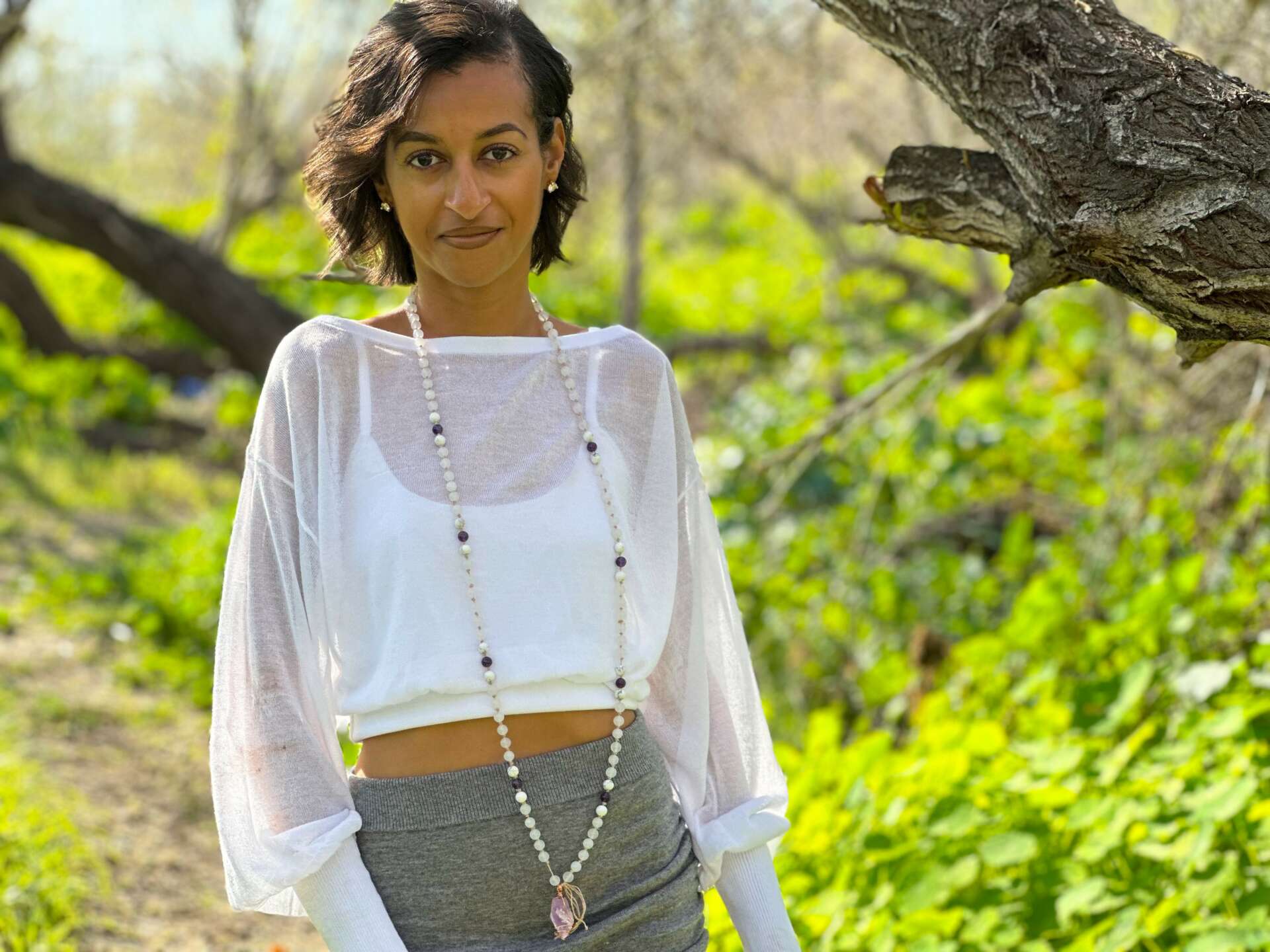
Awesome – so before we get into the rest of our questions, can you briefly introduce yourself to our readers.
I attended The Ohio State University where I majored in English, with focus areas in Women’s and Sexuality Studies. At that time, I was an avid reader and writer and had big dreams of moving to New York City to become a writer. I quickly realized how difficult it was to manifest that dream, but still pursued creative writing projects and diving into as much literature as I could.
After college, I quickly moved my way up to management where I worked for several high-end retailers as a store manager where I learned that I loved professional development as well as connecting to the clientele in the various stores I worked. I also learned key business skills so I’m grateful for that period of my life – although I have been out of retail for over ten years, I look back to this time and can see that these experiences shaped my love of connecting with people and seeing people grow and flourish professionally.
My health began to decline with my busy retail hours and the pressure of meeting the profit expectations and other managerial duties that affected my health, physically and mentally. I made the decision to leave retail with absolutely no idea what my next venture would be. As my health gradually improved after leaving retail, I reached clarity and realized I wanted to go to graduate school to become a therapist. Aside from being the constant friend who offered a listening ear and provided a safe environment for my friends and often times even complete strangers, I realized I wanted to make a bigger impact by being able to devote my career to the field of mental health.
I feel that professionals enter the field for their own unique reasons, but for me, it was far more personal since I had experienced years of adversity and hardship that affected my self-esteem and ability to feel hopeful about my future, so I struggled with depression and anxiety for years. It was during my own experience in therapy where I realized how crucial psychotherapy is to personal growth, and I feel I was spiritually called to work on my Master’s where I could make a greater impact in the field. Graduate school is a very rigorous process with years of coursework before you even begin your practicum working with clients in a clinical setting. And after graduating, you are required to complete two years of a clinical internship where you are expected to meet a certain amount of clinical hours and educational requirements before becoming licensed. All to say, it is a very time consuming process, but it’s an important aspect of becoming a therapist so that you can hone your skills and personal style as a therapist.
Another large passion of mine is my eclectic spiritual practice, and I’ve always been attuned the rhythm of Mother Earth’s cycles, and utilize moon phases for manifestation, cleansing and protecting rituals. I also find the experience of ancestral veneration very important, so I honor my ancestors and spend copious time at my altar where I connect with my body, soul and mind. During my last year of grad school, a friend had told me that I should consider becoming a Reiki practitioner, and it sounded daunting at the time, but I loved receiving Reiki treatments and have always utilized other healing modalities such as energy healing and acupuncture to support my physical and spiritual health. After my journey of becoming certified at Level 1 and 2, I built my Reiki practice almost by accident, where I was practicing on close friends and actually healing serious medical conditions. My intuition was also becoming strengthened and expanded, and I found myself being able to feel the physical pain in my Client’s bodies, as well as their mental health blockages. After training to become a Reiki Master, my skills continued to strengthen where I identified my love for helping people through what I consider Shadow Work – it’s a complex process where an individual is facing what is referred to as “The Dark Night of the Soul” but the transformation on the other side of surfacing trauma, pain and confusion brings forth light, clarity and healing.
My approach as both a therapist and Reiki master is to meet my clients where they are – to normalize the presenting the issues they come to me with, and to be someone in their corner rooting for their healing. Most importantly, I love helping my Clients face their shadow, as our shadow always reveals an unhidden truth that we often times suppress, but we must face darkness to reach light.
In my practice, I also utilize sound healing when helping my clients learn grounding strategies through deep breathing and guided meditation. I bring forth a unique style to clinical therapy that is very much rooted in mindfulness, and it’s been beautiful to integrate my own spiritual practices to bring my client’s to a state of balance and inner peace.
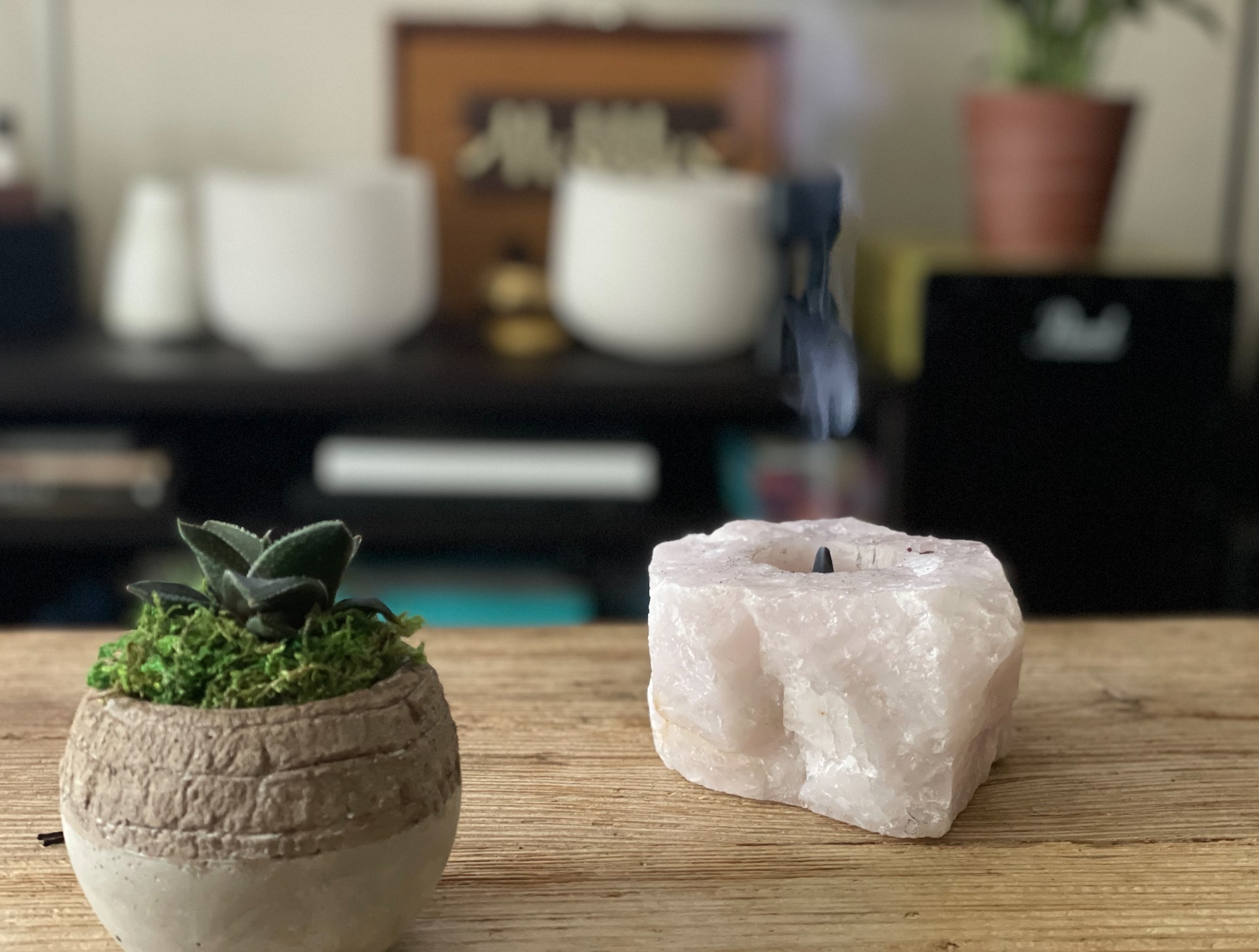
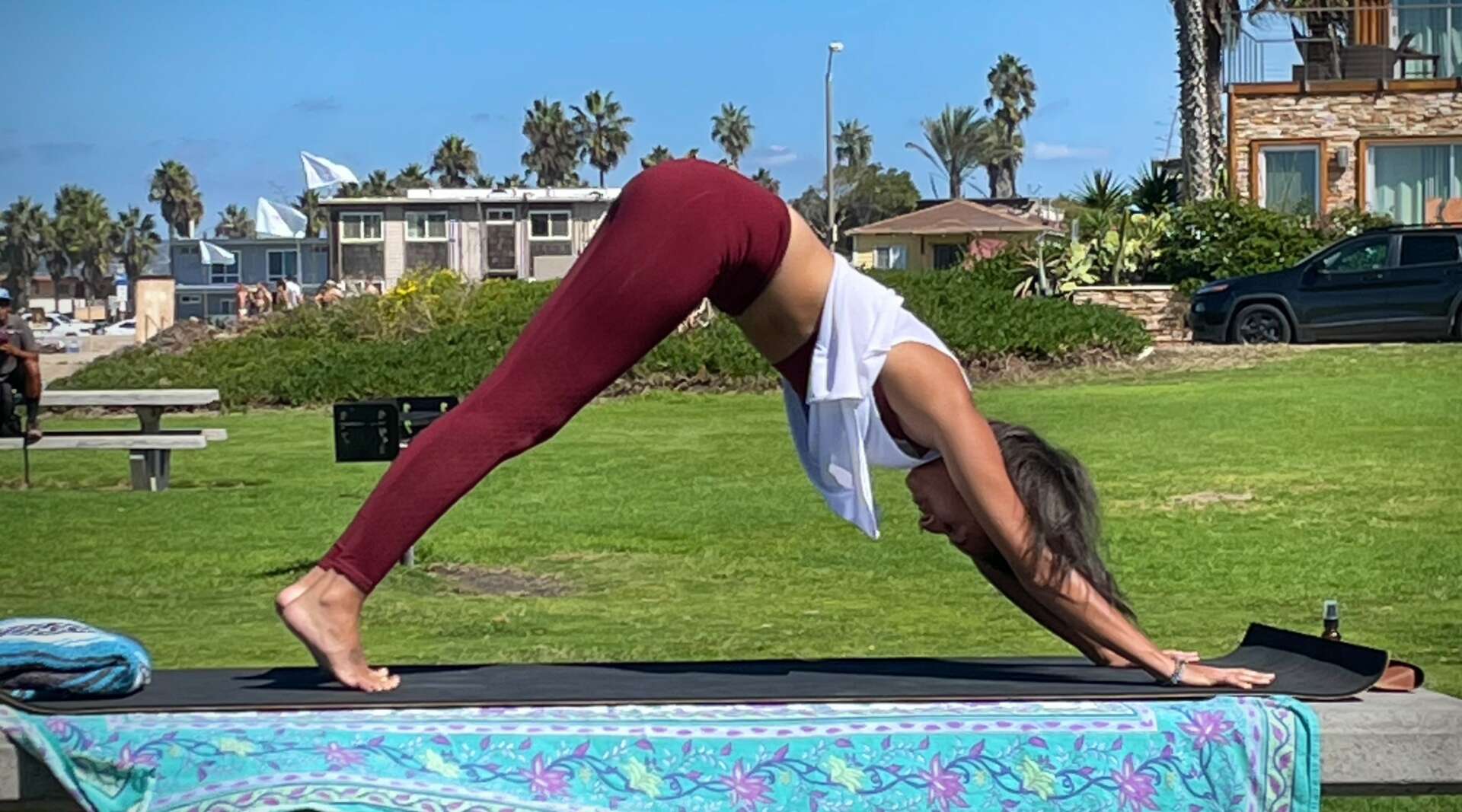
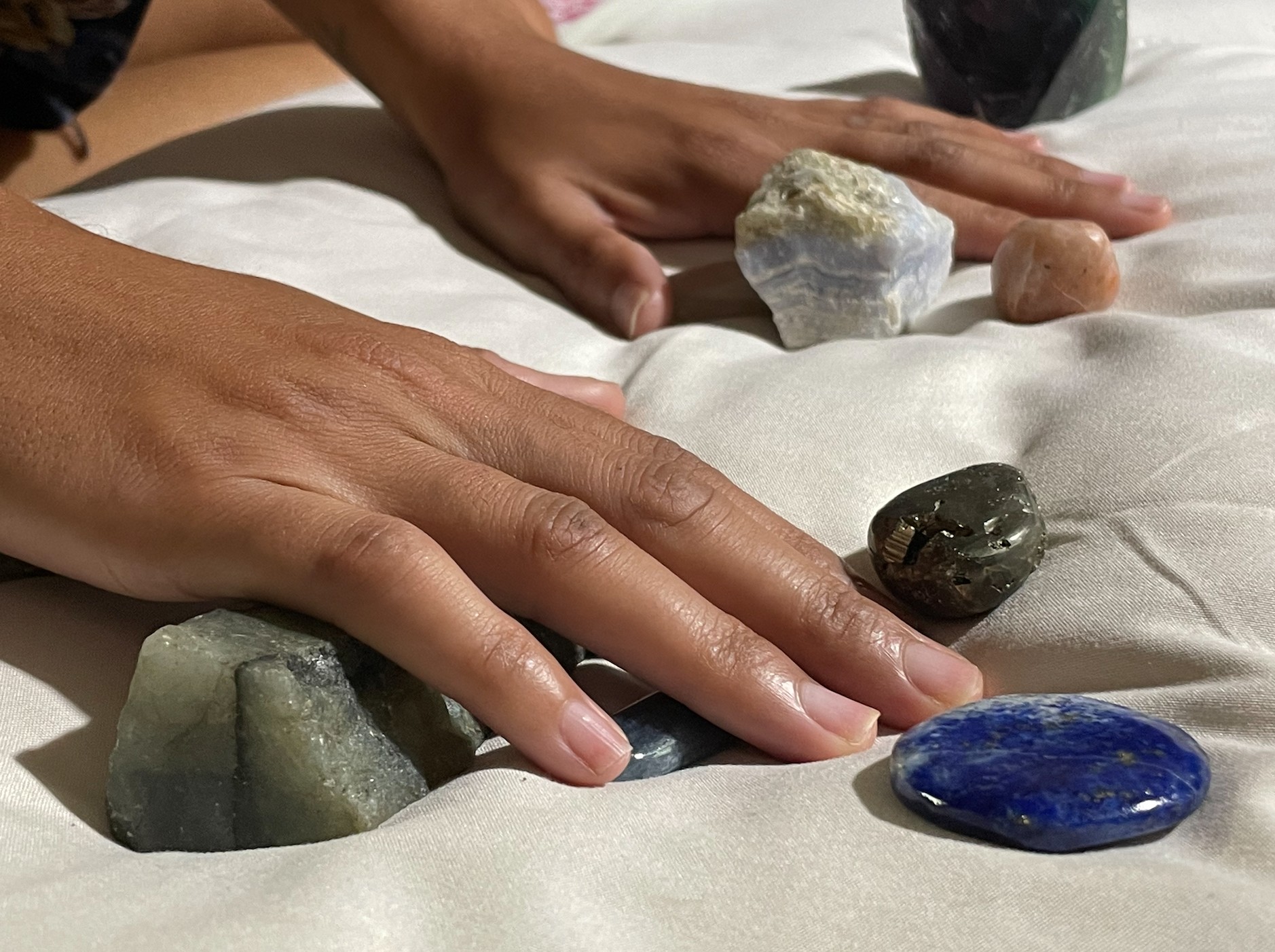
Let’s talk about resilience next – do you have a story you can share with us?
I previously mentioned my own experience as someone who suffers from anxiety and depression which like for most, started in childhood. I’m originally from the East Coast where I was born in North Carolina, but due to my mother’s career we relocated quite often so I attended 14 schools from elementary to high school. The lack of stability was a blessing and a curse, because it allowed me to become flexible and accepting of changes outside of my control, but I also longed for a place where I felt anchored and truly at home. I was bullied throughout my childhood because of my small size, the way I spoke, and my nose which plummeted my self-esteem. These are issues that as an adult who is 35 years old, I am still processing and healing from.
In 2017, I sadly experienced a traumatic event where I was sexually assaulted and shortly after was diagnosed with Post Traumatic Stress Disorder. I suffer from terrifying night terrors and panic attacks, and I was living in a constant state of fear and shame. 6 years later, I am still healing from this event, but I am proud of my progress and no longer feel self-hatred towards myself when reflecting on my assault.
2022 was a difficult year for me personally, as my life partner of 11 years and I broke up, which was devastating. I am grateful that we had a foundation of friendship before dating, and since our breakup, have been able to return to our beautiful friendship, but nonetheless, a life transition of that magnitude completely changed my life. I learned to stand on my own two feet and support myself finically independently, but that came with the expense of working extensive work hours that began to deplete me, and my physical health again took a toll. At the end of 2022, I was experiencing severe chronic pain throughout my body which I had experienced for years but had learned to accept. I was shortly after diagnosed with Fibromyalgia where I was forced to slow down my work pace to be with my body, and spend copious time each week with various specialists to support my condition.
Physical pain inevitably affects you mentally, and I remember being in so much pain that doing the most simple task took extradorinaiy effort, and the Fibromyalgia flare ups that I still experience are debilitating. Being forced to slow down, I realized I had to be with my body, to listen to what it was saying when it was expressing itself of the dis-ease I felt in my body. I am grateful to have tools as a therapist, Reiki Master and even my experience as a yoga teacher to be with my body in an intimate and healing way.
When I think of resiliency, I am always reminded of one of my favorite quotes from Ernest Hemingway that I’ve paraphrased: “Life breaks all of us; but some of us grow strong from those broken places.” Life is hard. Life WILL break us, but it’s how we choose to respond to those life events that shape our future. I know with full certainty that I am resilient, and I look at the strong members in my family, most who are alive and some deceased as guides and sources of inspiration as a reminder that life is hard, but there is much to gain from those difficult moments. In my clinical practice, that is still what fascinates me the most – how we can channel darkness and despair to hope and healing.
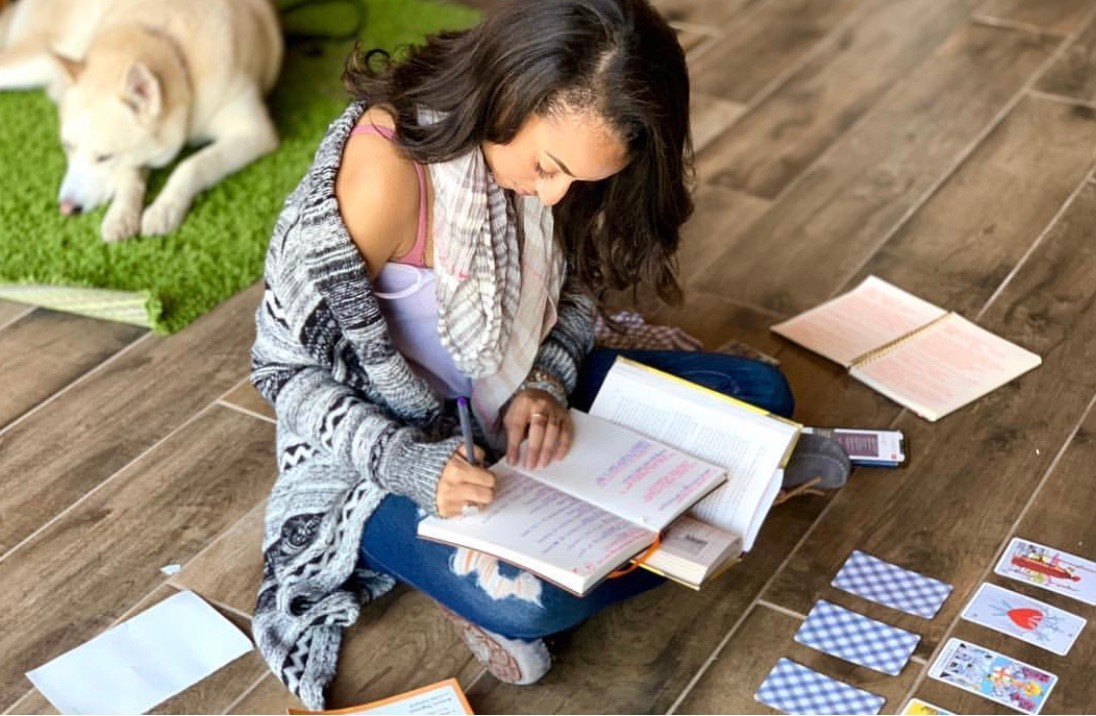
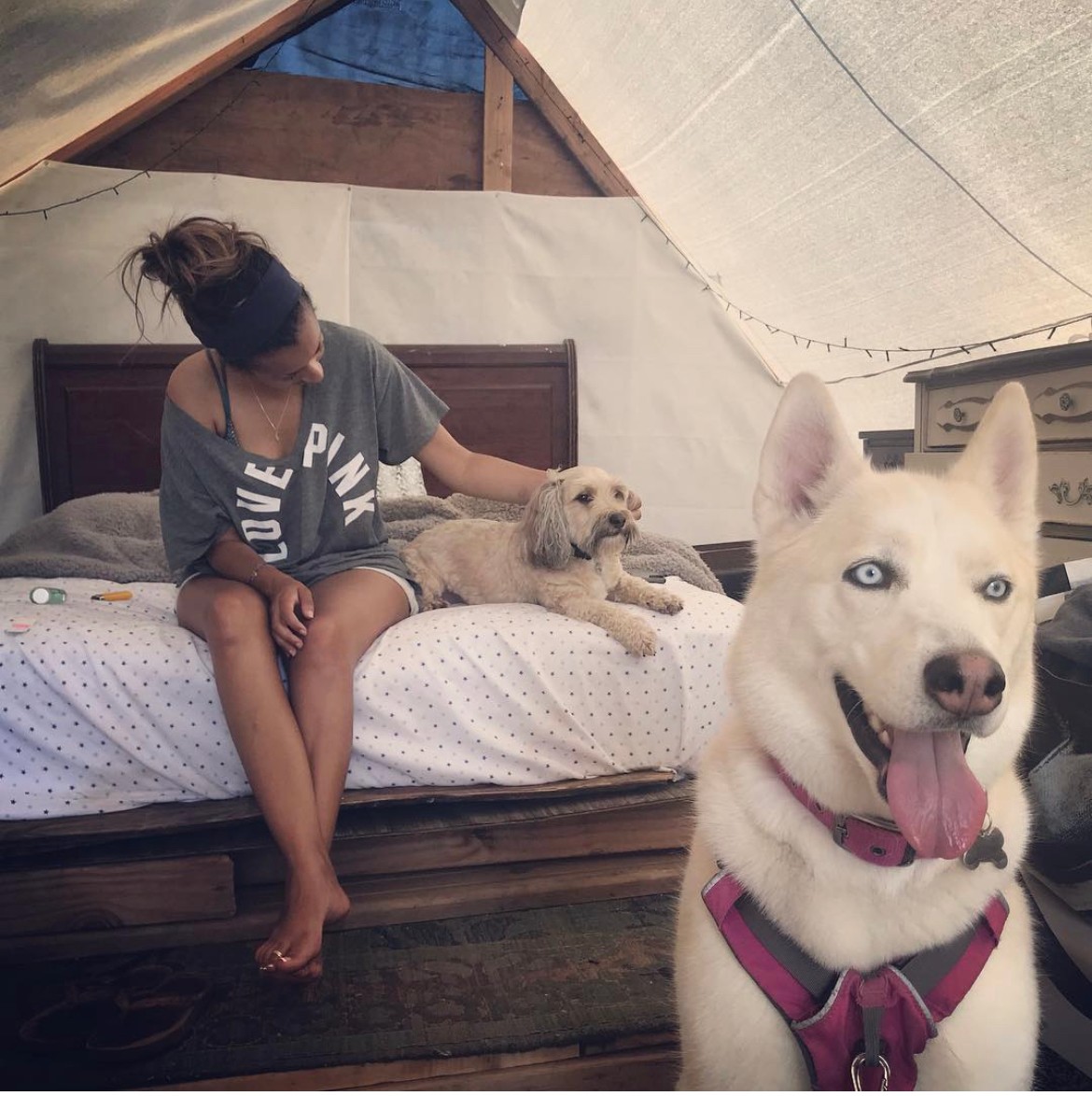
What’s a lesson you had to unlearn and what’s the backstory?
When I teach yoga classes, I always speak to the importance of “learning is unlearning.” In one of my favorite books “The Boy, the Mole, the Fox and the Horse” there is a part of the book where the author dedicates a page to the little boy sitting with the mole where he asks “I wonder if there is a school for unlearning.” The biggest lesson I have had to unlearn is detaching from my unhealthy coping mechanisms of using work and school as distractions when I am experiencing life stressors and when my mental health begins to decline. I have perfected masking my pain, but through years of integrating mindfulness into my life, I have realized the power of being vulnerable, to ask for help, and to acknowledge that things feel hard instead of putting on a facade that everything is perfect. Perfection is impossible. But, embracing our flaws and stuck points is beautiful and rewarding work that brings us closer to our truth. As a society, we are doing better at holding space for neurodivergent folks, which I most certainly am, so an aspect of unlearning for me is accepting that I am not designed to work myself to the point of sacrificing my health – I process information differently from others, and that is okay. I am a highly sensitive person, which is often criticized as weakness, but my sensitivity is my strength. It allows me to connect and empathize with others. I feel like I am unlearning aspects of who I am every day, and I am committed to the process.
Contact Info:
- Website: www.darrynkrobinson.com
- Instagram: @darrynkrobinson
- Twitter: @darrynkrobinson
- Other: www.sagepsych.com (this is the website for my clinical therapy services)
Image Credits
Vince Wolgamott, Photographer


